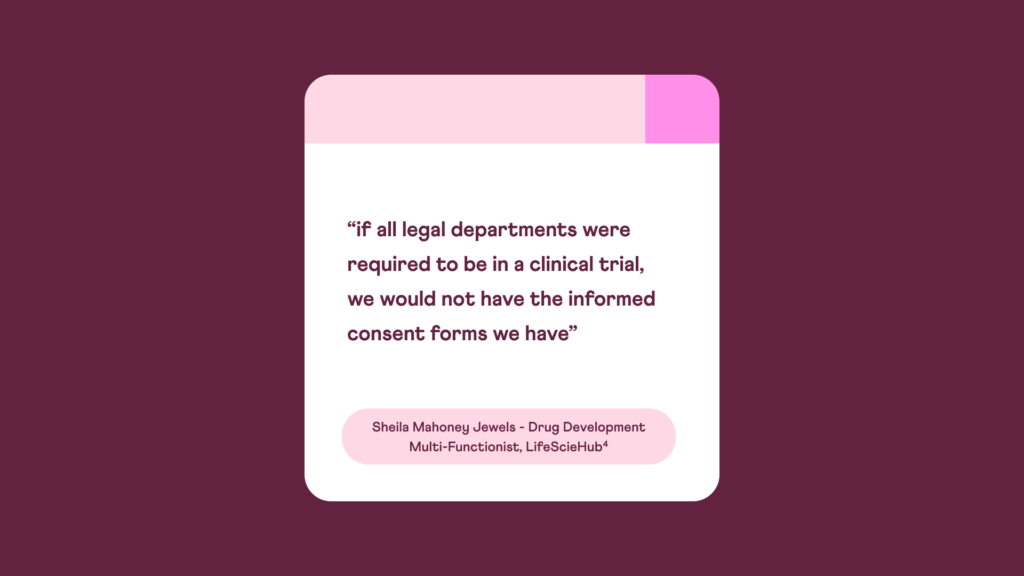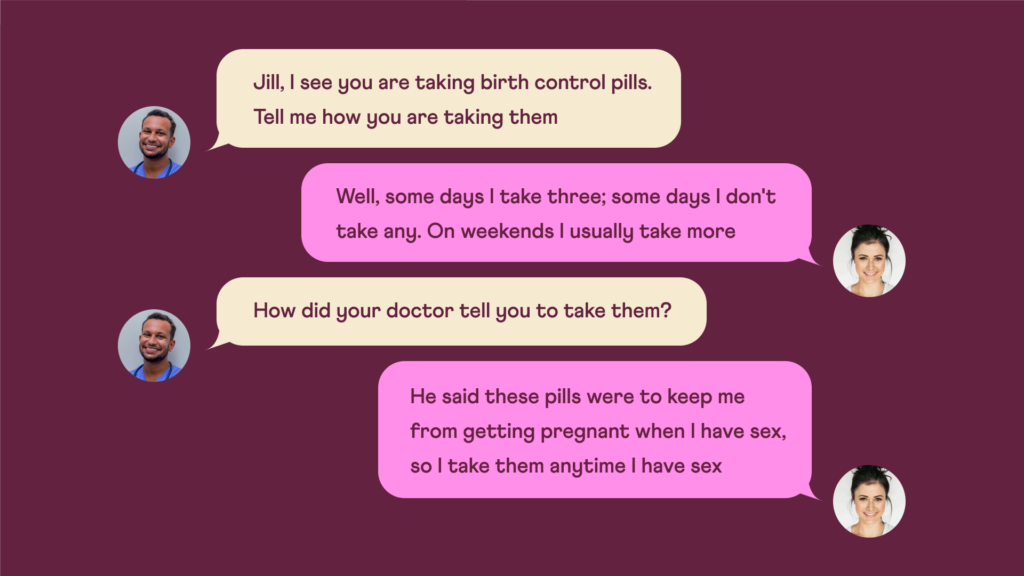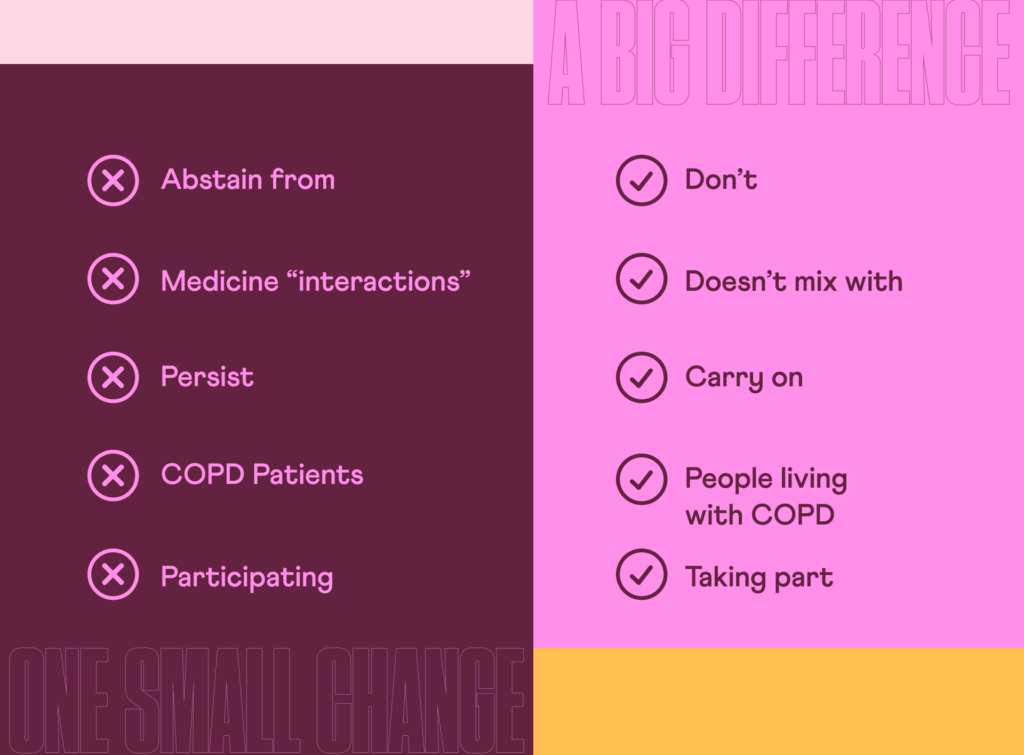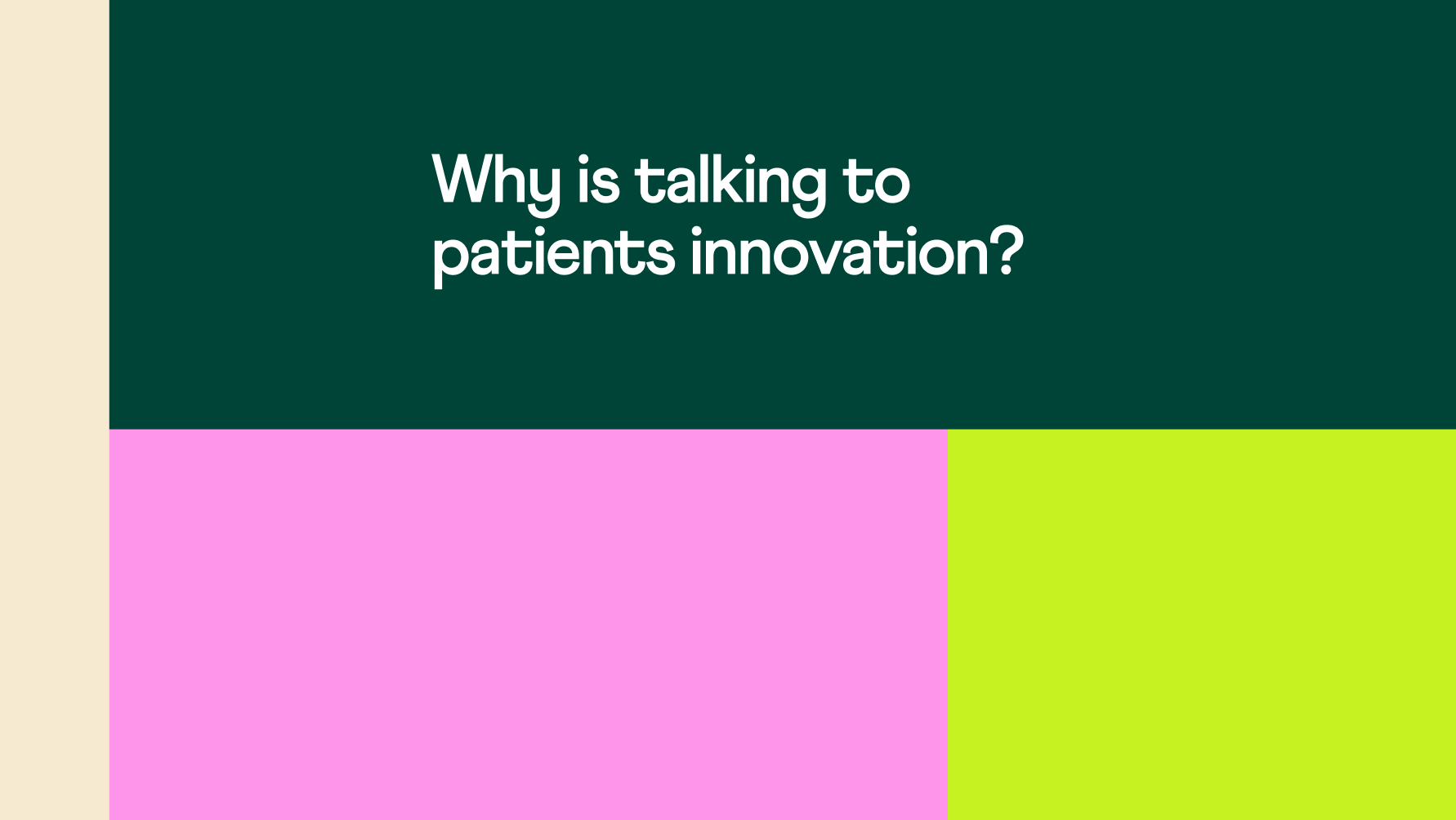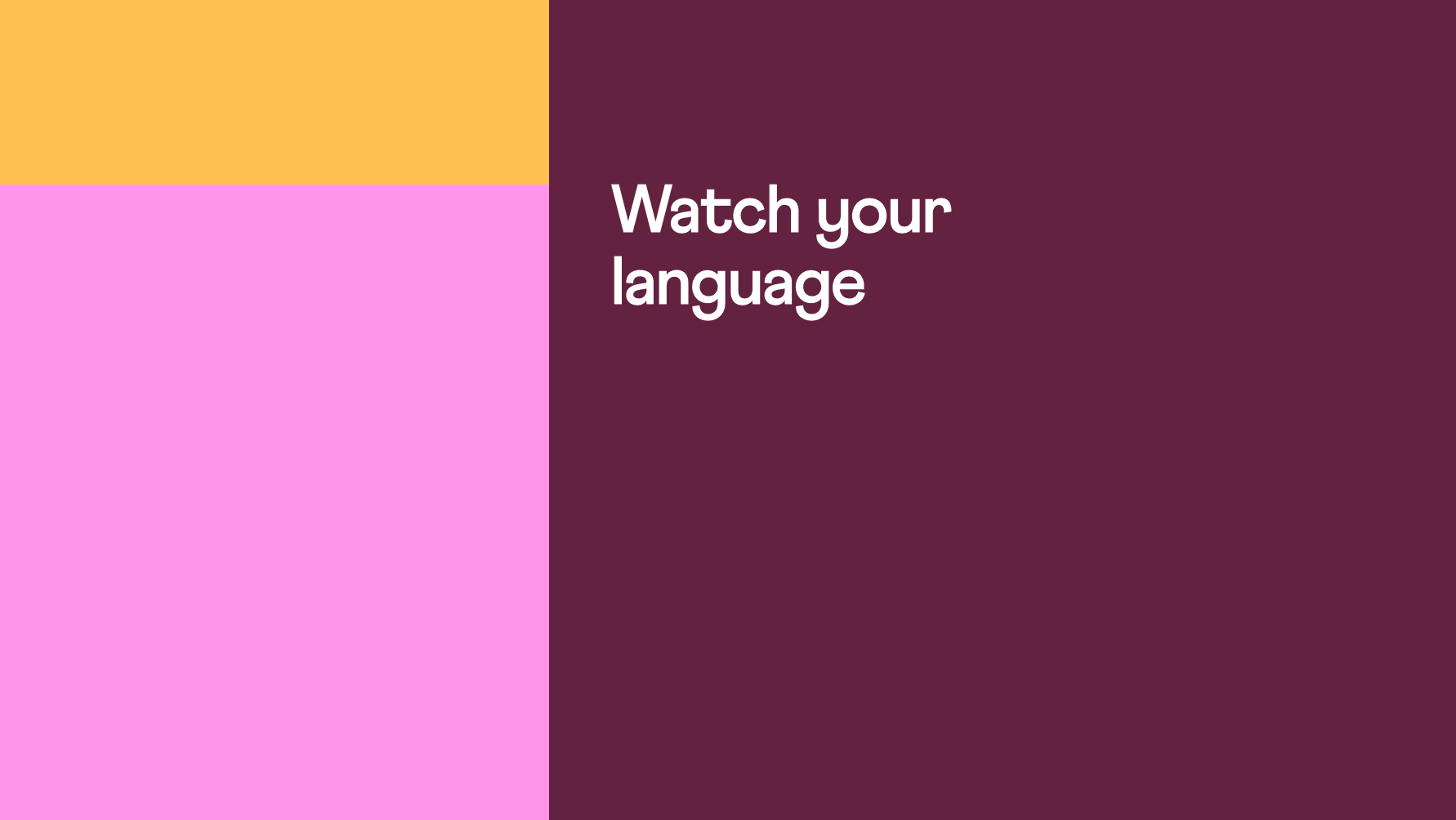
Watch your language: cutting through the jargon of clinical trials
Most patients don’t understand the language of trial materials – how can effective copywriting support people with lower health literacy to feel informed about clinical trials?
WTF IS Ur PR,OB,LE,M?
Reading that, you may have thought one thing, but you certainly didn’t think it meant: Weight Transferral Frequency, Intrinsic Safety, Urine, Pulse Rate, Occult Blood, Lupus Erythematosus, or Myopia. But it is something that a healthcare professional may have identified.
It’s this sort of use of heavy medical jargon, abbreviations and acronyms that is causing an uphill battle for patients who want to be fully informed about clinical trials.
So what needs to happen? Simply, simplifying.
Jargon Be Gone
On average, it takes around 8 years for a doctor to become fully qualified depending on their speciality (1) and in that time frame, their vocabulary becomes saturated with medical language.
SSc-ILD might sound like scleroderma-associated interstitial lung disease to a HCP, but to the average reader it sounds like something that would make their furniture fly around the room.
The issue with using medical jargon is that it’s not in the patient’s world; the average person doesn’t talk in code or shorthand.
“Patients still receive documents that are 8,000 words long and full of complex medical information. They have to consent to move forward with treatment, even if the average person usually can’t fully understand what the materials say.” (2)
Many patient advocacy groups have made this point, including Grace Cordovano, PhD, who stated, “No patient should ever feel like they missed their opportunity. Patients have a right to be informed about all treatment options including clinical trials.” (3)
Some have identified the wording of clinical trial materials are solely to cover the legal side. But with this being written by a person with a strong medical background, it’s hard to imagine how anyone is comfortable joining a clinical trial they may not fully understand in the first place.
A recent survey carried out by SCORR marketing, in which patients were asked what would most help them make informed decisions about participating. The answer was simple: Make it easier for us to learn about clinical trials. (5)
Let Me Level with You
But medical jargon isn’t the only problem clinical trial recruitment is facing, patient literacy levels have been a shared concern of governments globally for quite some time.
1/7 of adults in England have the literacy level expected of a 9- to 11-year-old. (6)
Which means they may struggle with longer texts and unfamiliar topics; this can include things like food labels or household bills.6
And the story is similar in the US as Richard Carmona, M.D. says, “The poor state of health literacy in America is a crisis. It is an underlying cause of disparities. It is also a source of extensive disempowerment and perpetuates preventable disease.” (7)
It’s not only reading and writing that some patients struggle with; communication levels can sometimes be a factor too.
This is a real conversation between a patient and her public health nurse. Jill is 21 and works as a house cleaner; she reads at a level equivalent to a 7 to 8 year-old. (8)
A Little Goes a Long Way
So what can be done? Finding the balance between communicating some occasional hefty science to patients without putting the clinical trial’s legality in jeopardy, can seem like a daunting task.
It’s thought that people get caught up in the clinical aspect of it all and sometimes forget they’re talking to real people living with real conditions. A report by the Royal College of General Practitioners (RCGP) has said, “Doctors can unintentionally use words that are unfamiliar to their patients, without realising that the meaning is not clear. Some concepts familiar and obvious to doctors may be alien to patients.” (9)
But we don’t need to dumb down the science for people to understand; we simply need to talk and communicate to people as we would every day, making small changes to allow the information to be accessible to all patients.
As well as changes to words and phrases, NHS research shows most adults struggle with statistics within health content. So instead of saying: “eight out of 10 people recover fully in a week”, say: “within a few days, you should feel better”. (10)
We’re Here to Help
The world of clinical trial recruitment can be confusing and difficult to talk to patients about. With complex therapy areas and intricate protocols, communicating the right thing can be problematic.
However, we at Faze are experts in making trials accessible, by using clear and concise communication – we get patients.
If you would like to talk about your clinical trial recruitment efforts, get in touch to see how we can support you, at we@havasfaze.com
References:
- https://www.ncbi.nlm.nih.gov/pmc/articles/PMC3641877/
- https://www.ciscrp.org/category/medical-hero-story/
- https://medium.com/@enlighteningresults/how-to-win-at-clinical-trial-recruitment-in-2019-d157117769c4
- The Other Side of the Table: Drug Development Professionals Share Their Experiences Participating as Patients in Trials”, DIA 2023, Boston. June 29, 2023.
- https://www.scorrmarketing.com/resources/the-patient-perspective-on-clinical-trials/
- https://literacytrust.org.uk/research-services/research-reports/seldom-heard-voices-adult-literacy-in-the-uk/#:~:text=1%20in%206%20(16.4%25),topics%20(OECD%2C%202016)
- https://www.ncbi.nlm.nih.gov/pmc/articles/PMC1831570/
- https://www.ncbi.nlm.nih.gov/pmc/articles/PMC3037129/
- https://www.bmj.com/content/348/bmj.g4131
- https://service-manual.nhs.uk/content/how-we-write

